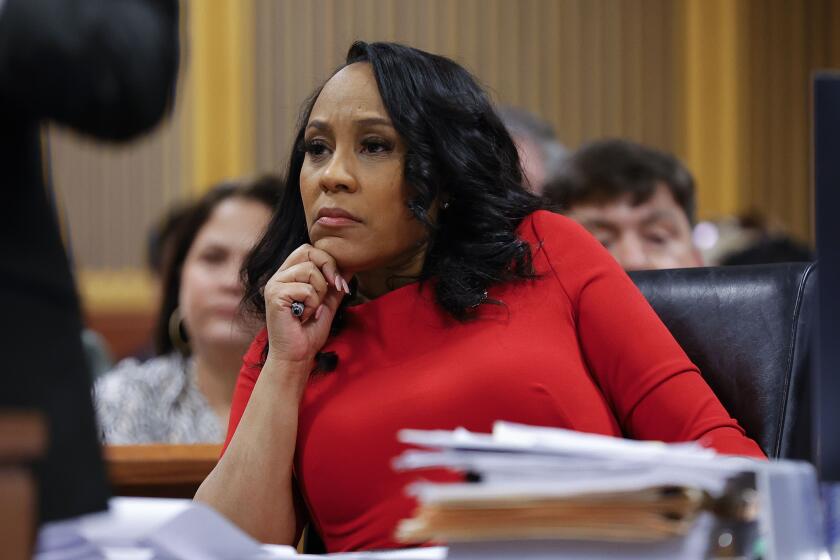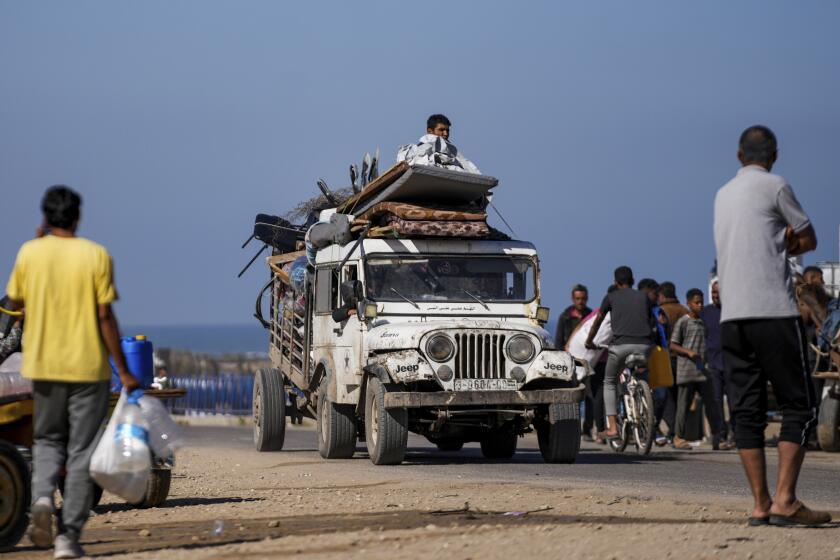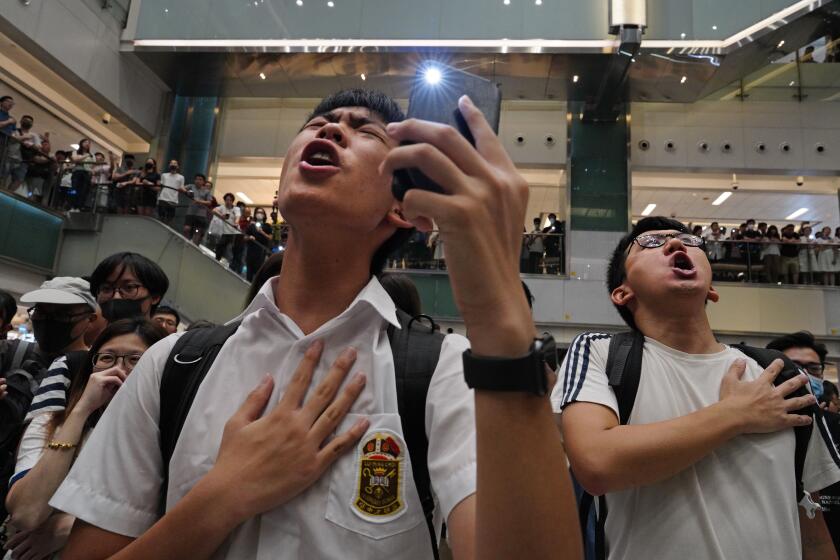Vietnam Veterans Recall Troop Pullout
For some Vietnam veterans, the horrors of jungle firefights are still relived vividly with only the slightest reminder. A TV program showing a rain forest. A car backfiring. The sight of a hearse.
However, for others, even for soldiers whose lives consisted of desolate years after they left Vietnam, the worst times are behind them as they continue to find new strength in the knowledge that they are not alone.
They gather to talk about their experiences in small groups at private dwellings and large ceremonies at veteran halls.
Today, on the 25th anniversary of the American troop withdrawal from Vietnam, soldiers throughout the nation will be reflecting on the impact the war had on their lives.
The largest Southland gathering will take place at 2 p.m. at Montebello City Memorial Park, where hundreds are expected to remember the fallen and the survivors. It was a quarter of a century ago, on March 29, 1973, when the last American forces evacuated Saigon, ending one of the darkest periods in the history of American military involvement.
On Friday, a group of veterans met in East Los Angeles to share what their lives have been like since Vietnam. They came to talk about post-traumatic stress disorder, known as PTSD. Though it is a relatively new term, the problems of life after combat are as old as war itself, they said.
“Look at the Hells Angels,” said Rick Nelson, one of seven Vietnam veterans who gathered at the East Los Angeles Community Union. “They were originally a bunch of World War II vets who just couldn’t adjust to civilian life.”
One of the themes that emerged from the meeting was the strong belief that although they received the chilliest welcome back of any modern U.S. warriors, they were not the first to suffer battle-related stress disorders. They just had a name for it.
“When I came back from ‘Nam, I wanted to talk to my dad about my experiences,” said Nelson, who fell into despair with post-traumatic stress disorder in 1980. “But my dad had fought at Anzio [the site of a bloody 1944 battle in Italy during World War II], and the talk reminded him of his own horrors. So he cut me off because he didn’t want to go back to Anzio.”
*
Nelson, a Marine who was wounded twice during the war before being released in 1967, said that for nearly a decade his life was a mess.
“After seeing the wreckage of my past, I finally began to participate in my own life,” he said.
Nelson credits not a fellow Vietnam vet with helping him recover his life, but a survivor of the Holocaust.
“There was this old guy in the Bronx, Shlomo Israel, and he was my beacon of light out of the darkness,” said Nelson, of New York.
“He was describing just how I felt, and he called it ‘traumatic stress.’ Once I had a name for my problem, things got better.”
*
Ruben Treviso, the head of a Vietnam veterans support group, played host to the informal panel. At first, he did all the talking, the others somewhat reluctant to join the discussion. Although Vietnam did not have the large-scale battles of America’s previous wars, Treviso said, the soldiers there encountered many small firefights, often two or three a week.
“A woman told me her husband is still having problems with the war and why can’t he just forget about it,” Treviso said. “I asked her, could she imagine being in two or three car accidents a week for one year? Could she forget about that?”
After a short while, the other veterans joined in. Although most of the men who had post-traumatic stress disorder said they were better now, others said their memories can still easily ruin their day.
Edward Hurlburt, who served in the Army in 1969 and 1970 and who was awarded a Purple Heart and the Gallantry Cross twice, recalled a day last year when, while wearing a Vietnam veteran baseball cap, a stranger approached him.
“He just looked at me and said, ‘You guys have a lot of mental problems, don’t you?’ ” Hurlburt said. “I didn’t know what to do. I almost flipped out and went off on him. But I just stared at him and said, ‘Yes, we do.’ I had to agree with him.”
But Hurlburt also recalled an incident with the cap that made him feel good.
*
“We never got a welcome back like the guys from Desert Storm or Desert Shield or whatever they called that. You know, I have been wearing my Vietnam veterans hat for years, and no one ever said anything to me about it. Except for one time. This mailman saw me and the hat and he said something simple like, ‘Welcome back,’ and he shook my hand. Man, that made my day. Hell, that made my month.”
More to Read
Start your day right
Sign up for Essential California for news, features and recommendations from the L.A. Times and beyond in your inbox six days a week.
You may occasionally receive promotional content from the Los Angeles Times.






